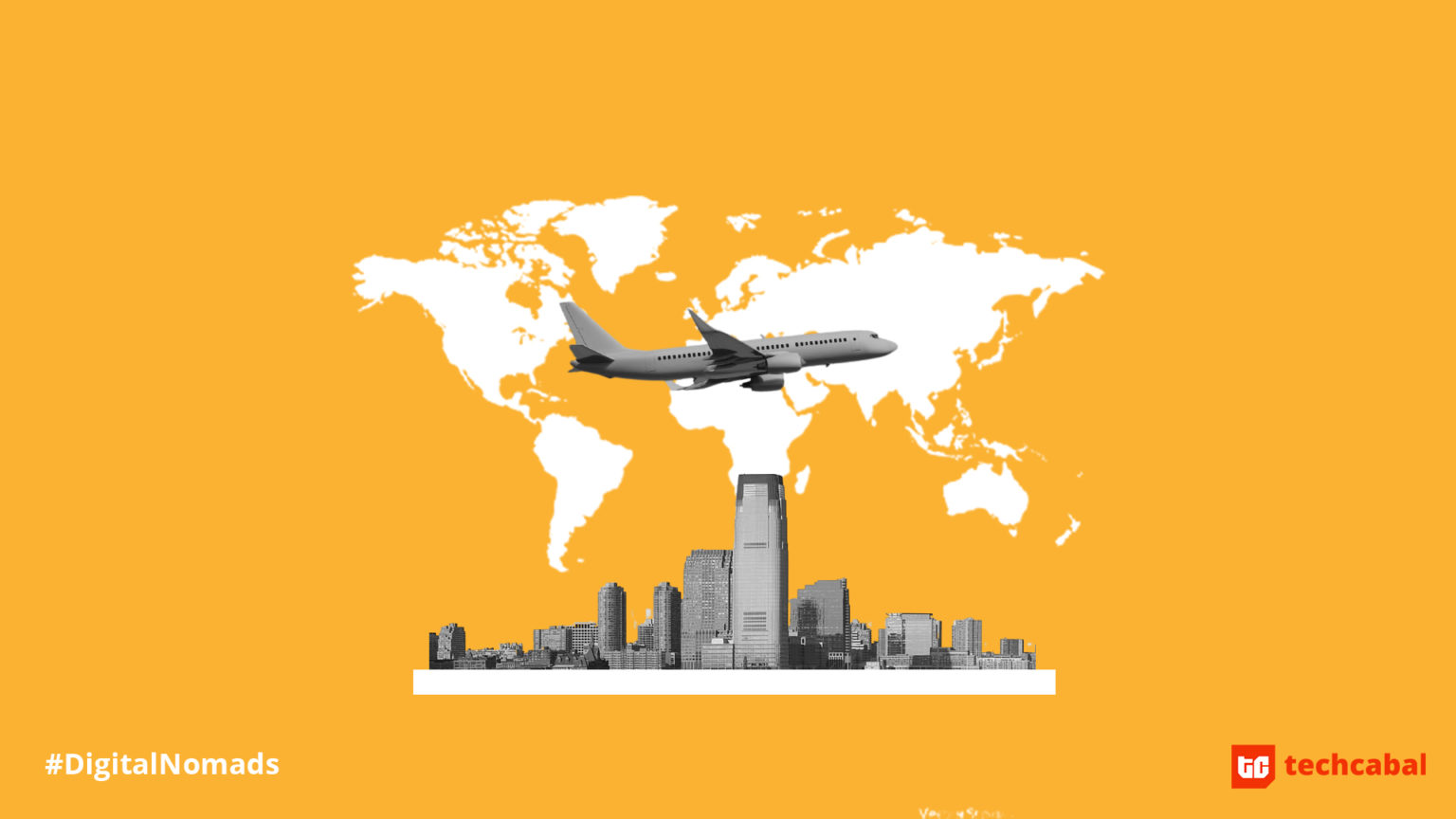There are many different reasons why people become digital nomads. However, before we get into those, we have to understand what a nomad is. A nomad is a person that leaves their home in search of greener pastures or new experiences. A digital nomad, by extension, migrates to explore more career opportunities in tech. Many digital nomads leave their home countries out of necessity, while others do so willingly.
For the past three years, TechCabal has been exploring why Africans have migrated out of their homes with the Digital Nomads flagship. From the first article, we have delved into the human angle and tried to discover why Africans travel in search of opportunities that will advance their tech careers.
The digital nomads we’ve spoken to have given several reasons for their decision to look for career opportunities outside their home country. The most frequent reason given is the financial freedom that jobs at international companies offer. It is not difficult to see why that has been the case.
Why Africans are leaving home
Most international companies pay remuneration in foreign currencies, which, when converted to African currencies, results in a significant increase in monthly earnings. The rising inflation on the continent—the average inflation rate across sub-Saharan Africa reached 9% in August—has led to several currencies like the Nigerian naira, the Ghanaian cedi, and the Sudanese pound rapidly losing value.
Lola Salehu, a product designer, left Lagos for Dubai, where her monthly expenses dropped and her salary was multiplied by eight. Similarly, a pastor who works as a data annotator for a US-based company said the job allowed him to pursue pastoring without having to rely on the offerings of his congregation.
However, money is not the only reason that people decide to become digital nomads. Sometimes the allure of self-fulfilment that comes with working for highly regarded international companies plays a part in people deciding to move abroad. A Unilag graduate working at the Goldman Sachs office in London said that he loved working there because it felt like he was finally living his dream.
These multinational companies also offer career advancement opportunities that a nomad might not have originally had access to in their home country. Subomi Salami, a product manager at Meta, realised this and decided to apply for Meta’s Rotational Product Management (RPM) Programme, which led to her getting her current job because she had always had this goal to start her career in big tech companies and then figure things out from there.
The decision to become a digital nomad is not always driven by desire, but rather by necessity. This rings true for the African students stuck in Ukraine at the start of the Russia-Ukraine war. Due to their proximity to the war and fear for their safety, they had to leave. In their talk with TechCabal, they said, “on the third morning, the tremors woke us up. Everything rattled, and the whole building shook. We didn’t even think twice, we packed our documents, and a few other things, and left.”
In another edition of Digital Nomads, a Nigerian said that frequent negative interactions with the police influenced her decision to leave Nigeria for the United Kingdom. After she was stopped twice in one night by the police and had to pay a bribe in exchange for her freedom, she knew she had to leave the country. “I knew then that I couldn’t do this anymore,” she said.
The quality of life outside their home country also motivates people to become digital nomads. For the Nigerian who decided to leave Lagos for Abidjan because “Abidjan is a Lagos that works”, his decision to move his entire family was spurred by the quality and ease of living he experienced in Cote d’Ivoire.
A businesswoman who left Nigeria for Tunisia said that she experienced two different Africas when she got to Tunis. “I wish it could be the same in Nigeria. Since I came to this place, electricity has been constant, water is constant. Everything works when you pay your bills.”
How does this affect the continent?
The increase of digital nomads might help improve the quality of life and experience for the Africans that take this route, but it is a worrying development for the continent as a whole. The majority of these digital nomads are skilled workers whose contributions could have helped the development of Africa had life here been kinder to them. The mass exodus of talent from the continent has led to several concerns about brain drain, and how it might negatively affect the continent.
“The people that are leaving are not those that have no jobs. You find all sorts of people across banks, telcos, and consulting firms leaving,” Rasheeda Seghosime, COO of Africa Foresight Group (AFG), a talent recruitment startup, told TechCabal. According to a survey conducted by the Africa Centre for Strategic Studies, the majority of African migrants already living in or travelling to Europe were either employed or enrolled in school when they left Africa. Considering that Africa’s nascent tech ecosystem has experienced accelerated growth and a boom in funding between 2018 and now, it becomes even more worrying that skilled workers and students are leaving in droves.
It is not all gloom though, as most of the startup founders currently building Africa’s tech ecosystem were digital nomads in the first place. Samuel Akintunde, the founder of AltSchool and TalentQL, told TechCabal that by getting exposure from other countries, Africans can help their home country develop. “Let people travel, make money, connection and partnerships, have access and learn new technologies. It’s useful to the ecosystem. You can’t build global talent by locking them up locally,” he said.
Akintunde’s stance is justified when considering companies like Bloom, a Sudanese startup whose founders met in London. Bloom is enabling Sudanese people hold USD and spend as they go in local currencies. The country recorded a 359.09% inflation rate in 2021. Similarly, Iain Usiri, the founder and CEO of Ramani, a Tanzanian startup, told TechCabal that the exposure that he got as a product manager in America gave him the necessary expertise to build his company.
While the rate at which Africans are leaving is worrying, the hope is that with time, these Africans can come home to help develop the continent.





















